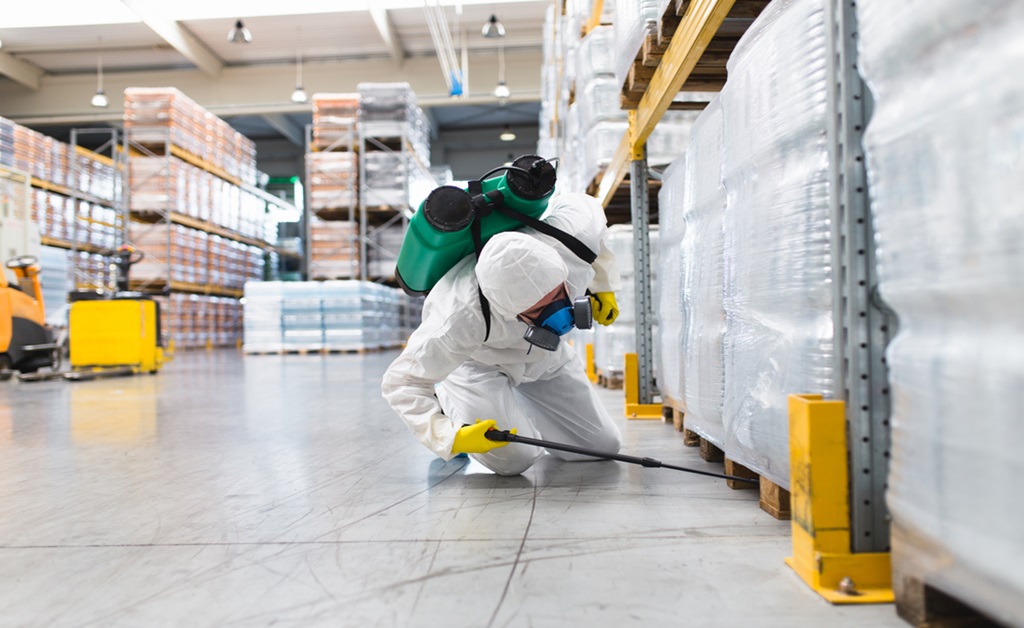In the food service sector, pests are not just trifling nuisances; they are formidable antagonists. They present significant health concerns, tarnish your brand’s image, and may even induce hefty penalties or closures. Their presence underlines the crucial need for food handlers to comprehend and execute cogent pest prevention stratagems, which are key in sustaining a secure and sanitary environment for their patrons. What should food workers do to prevent pests?
The Importance of Pest Prevention in Food Service
Food service establishments are prime targets for a pest intrusion. The conducive blend of food, warmth, and humidity sets the perfect stage for encroachment by rodents, insects, and other unwelcome guests. Such infestations can escalate into grave health threats for customers, given the disease-bearing potential of these pests, their ability to contaminate food, and the likelihood of provoking allergic reactions.
Furthermore, if these unwelcome guests are spotted in-house, the resultant reputational damage could be irrevocable. For food handlers, running a pest-free operation is not just a public health mandate, but also requisite for legal and industry standard compliance. Engaging in assertive pest prevention measures helps these workers curate a safe dining experience while aligning with regulatory dictates. This is where expertise from professionals in Venice pest control can make a significant difference.
Uninvited Guests in Food Service Establishments
Common culprits in the food service universe include rodents, cockroaches, flies, and ants. Each of these pests presents its unique set of threats that food handlers need to counter. Rodents, notably rats and mice, are infamous for gnawing through packaging and spreading illnesses like salmonella and hantavirus.
Cockroaches, hailed for their adaptability, can transmit harmful bacteria like E. coli and salmonella. Flies, a regular feature in kitchens and dining spaces, breed rapidly and are notorious for transmitting disease-inducing microorganisms, given their attraction to food scraps. Last but not least, ants, invaders in large numbers, can infiltrate stored ingredients. In unsanitary spaces or with improper management of food and waste, these pests can prosper.
Food handlers should stay vigilant, spotting early infestation signs such as droppings, chewed packages, or pest sightings, and promptly report them. Managers also play a key role in pest prevention; how should a manager prevent a pest infestation? Knowing this can significantly reduce the risk of these uninvited guests.
Preventing Pests Through Proper Food Storage and Waste Management
Efficient pest prevention hinges on two critical factors: access to food and waste. Food handlers play a pivotal role in disrupting this cycle through adequate food storage and waste management. Ensure food is securely sealed in pest-proof containers, with items like flour, sugar, and cereals, being particularly enticing to pests. Regular rotation to prevent spoilage and eliminate a conducive environment for pests is crucial. Cleaning storage areas routinely to eradicate crumbs and spills that might attract pests is also vital.
Waste management is equally pressing. Food handlers must regularly empty trash bins and ensure lids are securely fastened. Regular cleaning to eradicate lingering food residues or odors that might allure pests is paramount. Outdoor dumpsters should be distanced from the building and kept shut to deter rodents and flies. How should food workers deter pests from outdoor dumpsters? Make sure all staff members know the answer to this question.
Cleanliness is another key to successful pest management. Ensure comprehensive cleaning of food preparation and eating areas at the end of each shift. Focus on floors, countertops, and inaccessible corners where food particles might gather. Dry areas prone to moisture accumulation, like sinks and drains, as pests are as attracted to water as they are to food.
How should food workers deter pests? Implementing these strategies consistently will ensure a safe and pest-free environment for customers.

